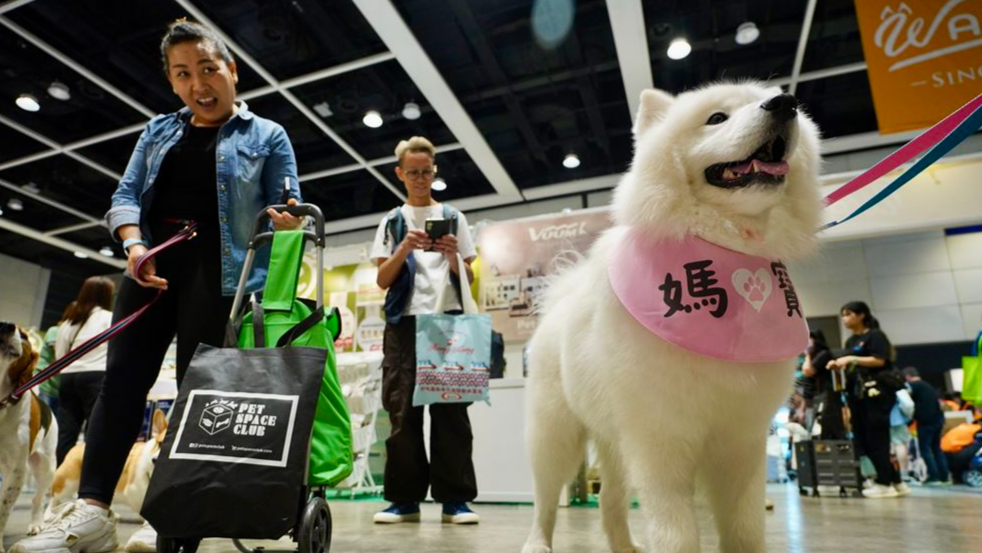
A large number of cats and dogs purchased online were in poor health compared to those bought in physical shops, with half of them experiencing illnesses or being in subpar condition, a survey released by Hong Kong Consumer Council on Thursday found.
The city's consumer watchdog also discovered that most online pet sellers are suspected of being involved in animal smuggling activities or in unlicensed local breeding and trading, and called for crackdowns on such illegal activities.
To investigate the emergence of and risks involved in the online pet trade, the Consumer Council teamed up with the Agriculture, Fisheries and Conservation Department to survey 1,051 local veterinarians from January to February to learn about their experiences in treating pets purchased over the past 12 months, and collected 112 completed questionnaires.
The results show that of every 10 pets needing medical help over the past 12 months, an average of 4.7 dogs and five cats were bought online, higher than the proportion of pets bought in offline shops.
ALSO READ: Fly with pets
About 92 percent of surveyed veterinarians said more people prefer to buy pets online because they cost less than buying from physical shops.
However, of every 10 pet dogs and cats purchased online, an average of five dogs and 5.5 cats were found to be ill or in poor condition — a higher proportion than pets sold by physical shops. Additionally, over 90 percent of the pets bought online lack proper vaccination records, a stark contrast to the percentage (less than 40 percent) of those bought from physical stores.
The prevalence rates of common diseases among cats and dogs purchased online — such as upper respiratory infections, diarrhea in dogs and flu and skin infections in cats — are also generally higher than among shop-bought pets.
Also, around 80 percent of the pets purchased online are not of the age their owners believe them to be, and 50 to 60 percent are not of breeds that align with their buyers’ expectations.
ALSO READ: Cats, dogs allowed to ride on HK's light rail connecting communities
The Consumer Council also contacted 13 online pet sellers as mystery shoppers, and learnt that around 90 percent of the sellers were suspected of different violations, such as smuggling pets from the Chinese mainland, and breeding or selling pets locally without proper licenses.
Ten of the sellers couldn't provide legal documentation for their pets' sources. Among the three sellers claiming to be licensed local breeders, only one was willing to provide a copy of the Dog Breeder’s Declaration.
About 90 percent of veterinarians in the survey agreed that a significant proportion of cats and dogs purchased online are suspected of having come from unscrupulous sellers or of having been bred in poor conditions, and another 84 percent agreed that many online-purchased pets are suspected of having been smuggled into Hong Kong, which may pose public health risks by introducing infections such as rabies.
The Consumer Council has urged the authorities to crackdown on unlicensed pet sales and smuggling. Residents are advised to consider adopting or purchasing pets from licensed sellers with complete legal documentation when acquiring pets.
The AFCD said it is committed to more regulation, and to educating others, in order to crack down on the illegal sales of cats, dogs, and other pets, and on related scams, to protect public health and animal welfare.
The department has initiated investigations using social media account details provided by the Consumer Council and will pursue charges if evidence is substantial.
Contact the writer at amberwu@chinadailyhk.com


